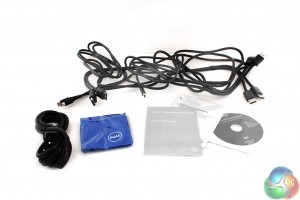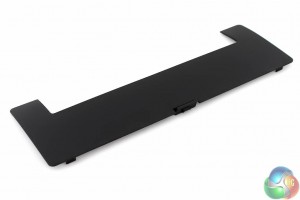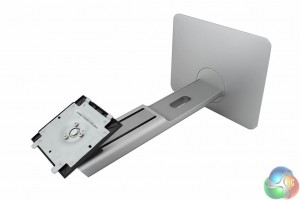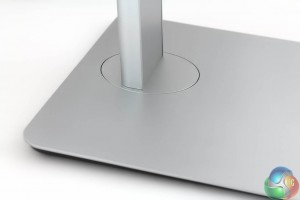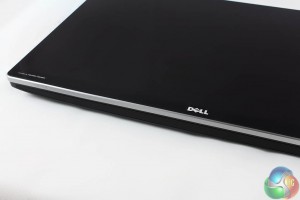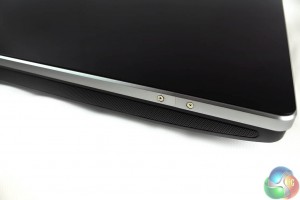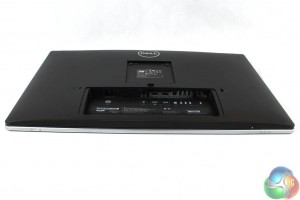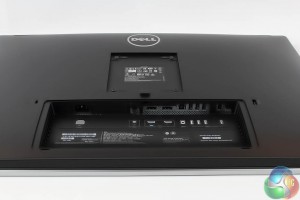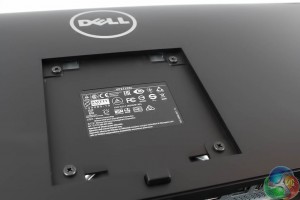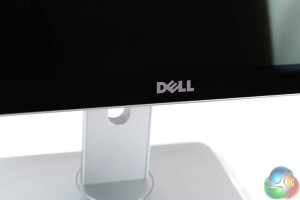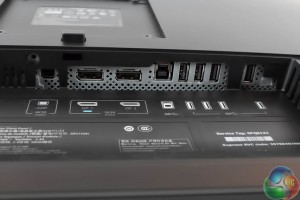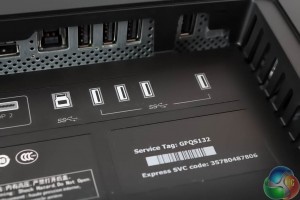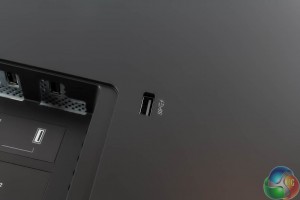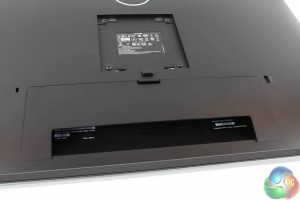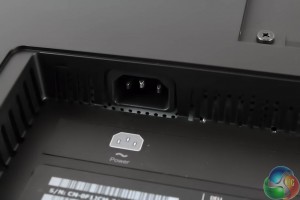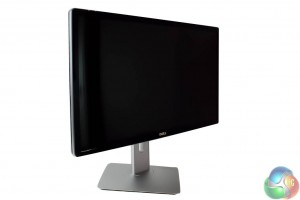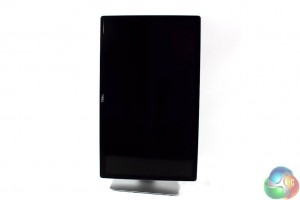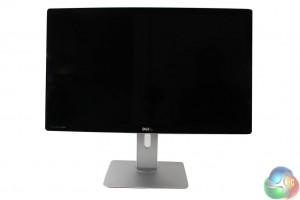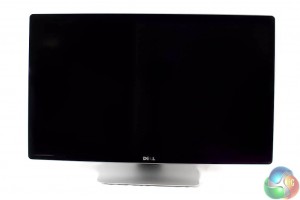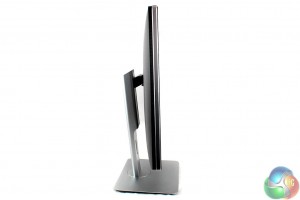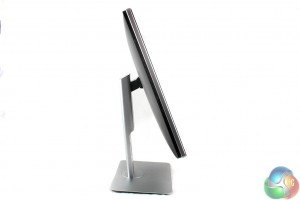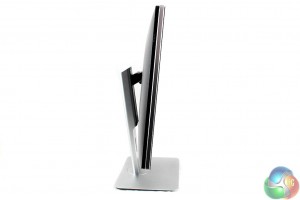While the packaging our review sample arrived in looks rather shabby, more importantly the real goodies inside it were in fine working order.
The box is quite heavy, as we found when lugging it around for testing. Dell’s site says the full package is 13.5kg, while the screen itself is 7.14kg, something to bear in mind if you’re looking at VESA mounts.
A number of unique cables are supplied, since the Dell UltraSharp UP2715K has some unique requirements. In a separate white box, there’s a dual-DisplayPort to dual-DisplayPort cable, dual Mini-DP to dual-DisplayPort cable and a standard Mini-DP to Mini-DP cable.
You also get a power cable, USB uplink cable, blue cleaning cloth, driver CD, calibration chart and quick-start guide.
One last accessory is the removable plastic cover to place over the ports at the rear of the Dell UltraSharp UP2715K. Hardly essential, as most people don’t spend much time looking at the rear of their monitors.
The stand is supplied already fitted together as a single piece. It cleverly sits in the packaging underneath the monitor, supporting the box.
It’s made from solid metal, and is quite heavy.
The screen is covered in glass and there’s a metal trim running along the edge.
A sound bar runs underneath the whole length of the lower bezel.
The rear is made from tough plastic.
The stand connects to the screen with the usual 100mm VESA holes, which can be used with your own mounting arm if you like.
As is standard with all Dell displays, there’s a big circular logo at the back, one in the middle of the lower bezel at the front, and a Harman/Kardon logo on the left edge, advertising the inclusion of technology from this speaker brand.
Sensibly, Dell has very clearly labelled how to connect the display to your computer. For 4K, use the MiniDP port on the left. For 5K, use the dual DisplayPort inputs on the right. It is not really intended to be used with secondary devices.
There are no HDMI ports for games consoles or suchlike. This is a monitor intended for serious business only, we assume. Only HDMI 2.0 would drive the screen at 4K resolution at 60Hz, and we’re not sure if it is possible for dual HDMI 2.0 to manage 5K.
There are four USB 3 ports on the underside of the display, with another fast-charging USB 3 port to the right, making a total of five.
With the cover over the ports, we admit, it looks kind of cool and minimalist.
It takes a standard IEC kettle lead. No need for an external power supply.
There’s also an SD card slot on the left-hand edge.
When assembled, the Dell UltraSharp UP2715K offers a full range of motion thanks to the flexible stand. It can rotate 60 degrees in either direction.
It can pivot into portrait mode.
And the height can be adjusted.
And the screen can be tilted forwards and backwards.
We did notice in use that while the screen is capable of plenty of tilting and rotating, it can be slightly wobbly. Not enough to be a major problem though.
Finally, the OSD is controlled with physical buttons located on the right-hand edge.
While the lower button is for power, the other four are used to navigate through the menus in the Dell UltraSharp UP2715K. We’ll take a look at the on-screen menu system on the next page.
 KitGuru KitGuru.net – Tech News | Hardware News | Hardware Reviews | IOS | Mobile | Gaming | Graphics Cards
KitGuru KitGuru.net – Tech News | Hardware News | Hardware Reviews | IOS | Mobile | Gaming | Graphics Cards



